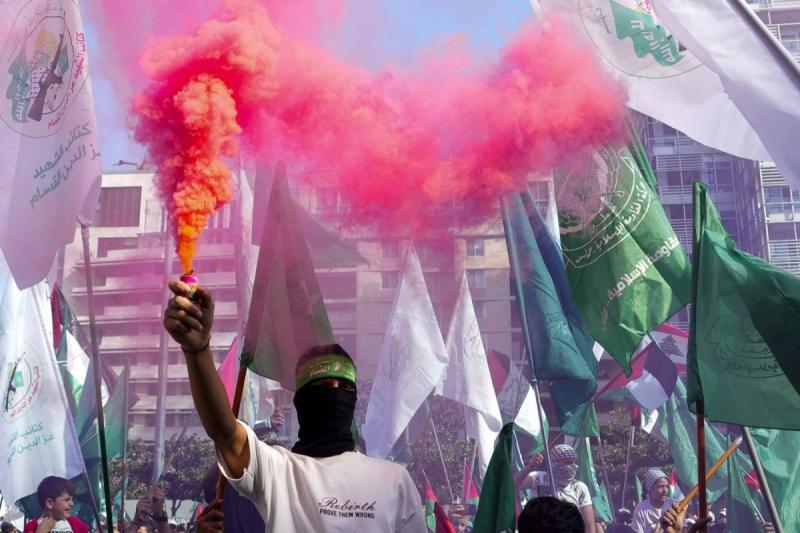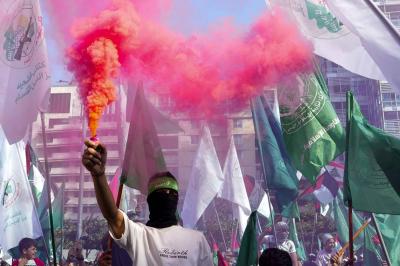There remains no Lebanese person who has not become an expert in international relations, especially regarding the behavior of "Hezbollah" and Israel in the ongoing clashes between them. Now, there are dozens of Lebanese, both men and women, appearing on media channels or other platforms, with titles under their names like expert or director of a center in international relations or in party or Israeli affairs. Naturally, these individuals do not assert with certainty whether a comprehensive war will occur or not; instead, they mention both possibilities and then favor a third possibility such as the continuation of daily clashes or U.S., Egyptian, and Qatari intervention to halt the war in Gaza and thus with Lebanon!
In reality, stopping the war has been an Arab and international concern for months, due to the horrors occurring in Gaza affecting people and infrastructure, especially children. Among the Lebanese, there is an added concern that their southern region is a second front in this war, where hundreds have been killed and vast areas of southern Lebanese villages have been destroyed, leading to anxiety over the displacement of tens of thousands of Lebanese to other parts of the country. Furthermore, the armed party claims it will not stop the war from the south until Israel halts its war on Gaza. The Lebanese believe that as long as the clashes continue, the file for the presidency, which has been vacant for two years, will remain stalled; "How can you bother us with these marginal issues when we are engaged in a defense and liberation struggle simultaneously?!"
One reason for the hundreds of Lebanese claiming expertise in war and peace is the increasing polarization among the camps. The Christians prioritize the presidency, while the concern of the party—and by extension, the majority of Shia at least in appearance—is the unity of resistance arenas and their escalation, and what this will mean for America and Israel on one side, and the potential benefits for Iran and Hezbollah and other militias on the other side, boosting their status in the future. When the Christians and Shia confront each other, Walid Jumblatt tends to lean towards the Shia side to avoid damage and to possibly benefit from Iran's future success. Only the Sunnis in this conflict have been confused, with one faction siding with the party under the pretext of supporting Palestine, and another with the Christian opposition to maintain national partnership and the ability to elect a president, which is essential for the state and homeland, rather than submitting to the gloomy prospects of destructive war. However, in recent weeks, the scales among Sunni youth have begun to tilt in favor of the armed party and "Hamas." They found an honorable entry into this through the small Islamic group allied with "Hamas" (within the Muslim Brotherhood), which began sending its militias called "Fajr Forces" to attack Israel from the south, leading to casualties among those involved and huge martyrdom celebrations in Sunni villages. Moreover, some clerics appealed from pulpits to fight. Recently, politicians who had been silent began calling for struggle alongside "Hamas" and the party, while calls for a coalition between the Islamic group and the party intensified. When I called in a speech on one platform for reflection and review, rejecting the ineffective subservience that does no good for Palestine or Gaza, many attacked me, with one claiming that siding with "Hamas" and Gaza aims to prevent the party from remaining isolated in the struggle, leaving the Sunnis accused of conspiring with Israel!
The significance of self-interest among the Lebanese is such that they look at how their circumstances might influence the world. The armed party takes pride in the number of envoys negotiating with it to stop the war, and its media broadcasts the estimates of the horrors of the weapons it has amassed and trained on daily basis. Those not affiliated with armed factions do not lag behind in pride for their political and media forces or the value of their country, with some believing that the Lebanese situation has influence on the French elections or the Iranian elections. Commentators disagree on where the Lebanese interest lies in these elections. Some support the right, while others support the left. In Iran's elections, some bet on the reformist Bezhakian, while supporters of the party bet on the conservative Jalili!
It does not seem that the opinions or predictions of the Lebanese are impactful either on the ongoing war or the presidential elections. However, some external analysts claim that Iranian statements about negotiating "the share" with America are true. This has raised fears among Lebanese opponents of the "Shia duo" ("Hezbollah" and "Amal"), who suspect that this share might be for Suleiman Frangieh, the "duo's" candidate for the presidential elections! A Lebanese media figure told me: Why are you troubled by the futile politicization of the Lebanese? Isn't it better than feeling despair, helplessness, and futility?!




